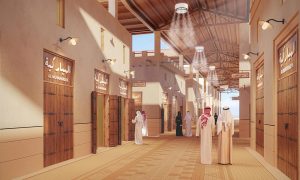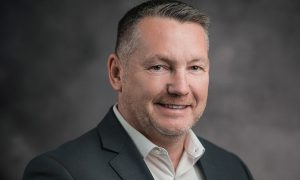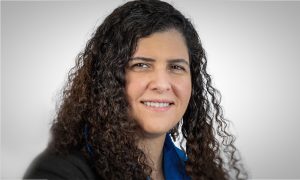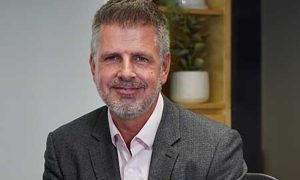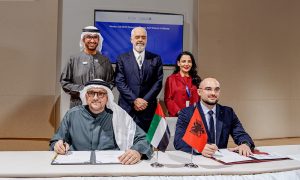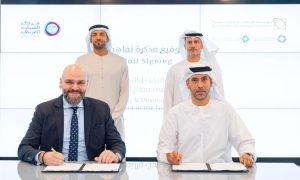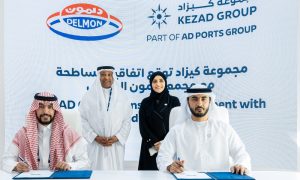Tarek Shuaib: Keeping the Pace at the Kuwait architecture firm
How Pace moved from strength to strength over the last five decades
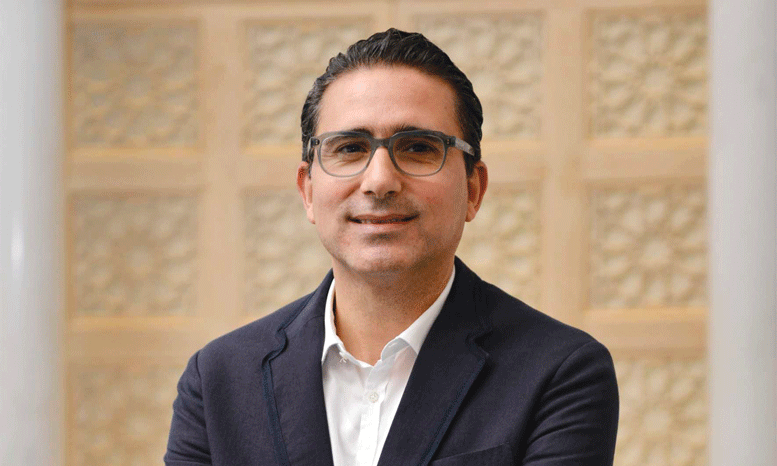
From its inception back in 1968 by Hamid Abdulsalam Shuaib and Partners, Pace was quick to establish itself as a lead contributor to the development of urban planning and architecture in Kuwait. But right from the early days, while the focus was on designing iconic structures, the company also worked relentlessly on creating a deep talent pool in the region. This has been achieved not only by attracting great quality staff from across the world, but also by fostering a creative mindset among graduates and establishing itself as an educational institution for budding architects and engineers.
With their golden jubliee just three years away, ME Consultant caught up with Managing Partner Tarek Shuaib, son of founder Hamid Shuaib and managing partner at Pace, to find out how the company has managed to achieve its milestones and shape the face of Kuwait, especially in the invasion period.
“In 2018, we’re going to be 50 years old, and it seems that Pace’s vision is going to come full circle,” says Shuaib. “In the last few years, we’ve seen a greater architecture boom in Kuwait and we have been able to work with young engineers and architects who are coming out of the education system, so we are impacting them as we did with the engineers and architects 50 years ago.”
“We strongly believe that what we do is not just for our bottom line, but also impacts the country as a whole. We are positive about the future; especially after the invasion in Kuwait, the markets had dipped for quite a while, but now we are in the process of revitalising Kuwait’s architecture and these are exciting times for the construction industry.”
READ MORE: Gulf’s strong public sector ‘a challenge when recruiting’ in construction
One of the banes of the construction consultancy space in the Middle East has been talent acquisition, and Shuaib explains just how important having the right person for a job is, not only from a corporate perspective but also for the country.
“Young architects and engineers would have two choices – either they enter the private sector in this region or the government sector. For me the government sector is far too big, and there may be more learning opportunities in the private sector for some of these young graduates.
“It is important for Pace to have access to these young professionals in order to be part of their growth and to be able expose them to large-scale projects – especially those that tackle key industries that effect the future growth of Kuwait, which we work on in a very systematic and professional way.
“Some of our employees go on to become our clients or they become sub-consultants for some other jobs. We feel we recruit and harness talent, and have also managed to associate ourselves with a number of international firms by having them invited to deliver speeches and presentations to the future architectural talent of Kuwait.”
In terms of their apporach to design and architecture over the years, Shuaib says it’s as simple as providing clients with the buildings that they need, and that this can be done by ensuring that the structures are functionally and aesthetically inspiring for the people who use them. So far, they’ve relied on their strengths, namely providing quality and using their creative team to deliver projects in an efficient and professional manner.
He says, “It’s crucial for us to work with our clients from inception right up until delivery to make sure we cater to their every need. There is a large investment from their side, and we want to ensure they get the best return on investment.”
READ MORE: Gulf’s strong public sector ‘a challenge when recruiting’ in construction
The challenges of course have been many, and one of the most prominent for Pace has been dealing with contractors in the region. Shuaib highlights that it is important to keep in mind that contractors too have a set of challenges that have a domino effect on their clients, the biggest being excessive bureaucracy and the cost and difficulty of sourcing the right materials. He explains his strategy.
“To overcome some of the challenges we face with contractors, we set strategic incentives, which improves delivery and quality during construction and which is what we did for the award-winning Avenues Mall’s phase one, two and three. I think we need to move a step forward now in Kuwait and have to encourage the local contractors to improve their services. In order for that to happen, I believe we have to open up the market to international contractors and encourage them to come here so that our own standards improve.
“One step towards that could perhaps be taking steps towards improving the tendering laws and making the conditions of the contract for international contractors more appealing, which some governmental bodies are already doing.”
Speaking about the impact of recent events in Iraq and Kuwait on construction, Shuaib says that there have been a lot of challenges on that front, but the sector has received a lot of regional and international support.
“With the fluctuation in oil prices and the current security concerns, both locally and across the region, everyone’s peace of mind has been affected, leading to economic instability. However, we have witnessed a lot of support from regional and international partners, and this has strengthened the resolve of the Kuwaiti government to continue operating as usual.
“I’m sure there will be some repercussions due to the political instability, but Kuwait’s development plan has been set in May and I believe that there is going to be a continuous push forward to meet those targets that have been laid out for the next five years. It will not be easy, but I am sure we can overcome it.”
READ MORE: Gulf’s strong public sector ‘a challenge when recruiting’ in construction
Considering the recent events that have shaken the political and corporate structure in Kuwait, forging partnerships with international consultants does seem like the logical way forward to heal the local industry, but Shuaib says that the focus for local players should be to first step up their game and impove their offerings before approaching an external partner.
“We feel that in Kuwait you do need a lot more improvement in some of the performances of consultants. In certain specialty projects, international consultants are being utilized as there is a lack of experience in those specialties within the region. Some clients do want specialists and named architects to work with, but we find that in order for these architects to be successful, they have to have a strong local partner like ourselves.
“We also have a great architecture and engineering team here, so we do a lot of projects independently. However, I do think that it is crucial for both worlds to be exposed to each other, as it is a learning process for all.”
Pace’s first-quarter performance this year reflects its sentiment regarding an individual firm’s responsibility for self-growth and industry growth. Shuaib says Pace has been fortunate to work on some great projects over the last few years, some to be delivered shortly and some still in design.
“In terms of architectural and engineering services, we have been concentrating on healthcare, transportation, education and retail. Additionally, we have really been pushing forward to strengthen our talented team, supported by additional resources of industry experts, which will enhance our performance on high-profile projects.
“We are pleased with our accomplishments and success to date, and we are confident that we will continue building upon our achievements. I am a firm believer that an individual or company should always strive to keep learning and developing themselves. In the corporate world, there is a lot to learn from international best practices, and at Pace we endeavour to set new industry benchmarks.”
Speaking about Pace’s expansion plans Shuaib says, “At present, we have offices in Riyadh and Bahrain. Currently, our Riyadh office is handling an extensive number of projects within different industries, such as the Noura Center and the Riyadh Metro.”
“We may also consider entering new markets, but that will not take place until early next year. Since we have been covering the north of the Gulf so far, the logical next step for us is to start looking further south in the next year.
“We are also well placed internationally, as we work closely with the Islamic Development Bank, Kuwait Fund for Arab Economic Development and the Arab Fund. These bodies open up great opportunities for us to offer consultancy services when these funds are investing in projects abroad.”
READ MORE: Gulf’s strong public sector ‘a challenge when recruiting’ in construction
Asked about his concerns regarding the deal with Iran and the West and its impact on the construction industry in Kuwait and the GCC going forward, Shubai is quite positive.
“I think it will lead to greater political stability in the region and open up a huge market with numerous opportunities for us. Iran has a great pool of resources, including talented engineers, which will now be easier for us to access, and there may also be a reduction in the cost of materials and certain commodities. Time will tell, but I am optimistic.”
Writing by Davina Munro. Interview by Gavin Davids.



